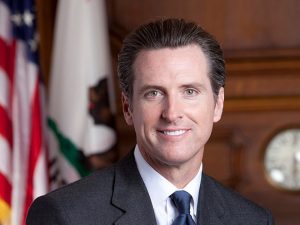In 2021, the Washington Post shed light on California Governor Gavin Newsom's decision to award no-bid contracts to Blue Shield and McKinsey & Company for the state's vaccine rollout during the COVID-19 pandemic. The outsourcing of these crucial responsibilities to private contractors has raised concerns about transparency, accountability, and the cost to taxpayers. Additionally, McKinsey's involvement in the opioid crisis has further fueled the controversy. Despite these issues, Newsom's administration continues to engage with McKinsey, prompting questions about the state's commitment to public oversight.
The use of no-bid contracts with private companies and non-profits, such as McKinsey & Company, has come under scrutiny due to the lack of transparency and limited avenues for holding government agencies and politicians accountable. As private contractors are not subject to public records laws, taxpayers and journalists face obstacles in assessing the effectiveness of these arrangements. This raises concerns about the responsible use of taxpayer funds and the potential for overlooking weaknesses in the public health system.
The involvement of McKinsey & Company in the opioid crisis further compounds the controversy surrounding its contracts with the California government. In early 2021, the company reached a settlement with 49 state attorneys general, territories, and the District of Columbia regarding its work for opioid makers. McKinsey paid $600 million to combat the drug epidemic, acknowledging its significant role as a major player in the crisis. While California's Attorney General, Rob Bonta, secured a substantial $573 million settlement with McKinsey, the company's continued engagement with state agencies raises questions about the prudence of such collaborations.
Despite its connection to the opioid crisis, McKinsey & Company continues to work with key California government agencies, including the California Health & Human Services, the Department of Motor Vehicles (DMV), and the Department of Social Services. This decision raises eyebrows and fuels concerns about the state's commitment to upholding ethical standards and prioritizing public health. It becomes even more troubling when considering the extensive settlements achieved by the Attorney General's Office in collaboration with other entities involved in the opioid crisis, such as Purdue Pharma and Johnson & Johnson.
Governor Gavin Newsom's decision to award a no-bid contract to McKinsey & Company for promoting vaccines during the Covid lockdowns further exacerbates the controversy. Critics argue that state and local agencies already possess the necessary budgets and staff to handle vaccine dissemination. The choice to involve McKinsey in such a critical public health initiative calls into question the administration's rationale and the potential implications for taxpayers.
The lack of public oversight and limited access to information regarding the performance and outcomes of these contracts only deepens the unease among taxpayers and journalists. It is imperative that government agencies prioritize transparency, ensure competitive bidding processes, and promote accountability to restore public trust and confidence in their decision-making.

























